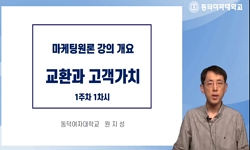It has been almost a quarter of a century since the ‘crisis of humanities’ was promulgated, and it faces a new challenge by the influence of ICT industries; the demand for digitalizing of humanities. Under this harsh circumstance, it seems that th...
http://chineseinput.net/에서 pinyin(병음)방식으로 중국어를 변환할 수 있습니다.
변환된 중국어를 복사하여 사용하시면 됩니다.
- 中文 을 입력하시려면 zhongwen을 입력하시고 space를누르시면됩니다.
- 北京 을 입력하시려면 beijing을 입력하시고 space를 누르시면 됩니다.

디지털인문학, 인문학의 창발적 변화인가? = Digital Humanities: the Creative and Expansional Evolution of Humanities?
한글로보기https://www.riss.kr/link?id=A104147073
- 저자
- 발행기관
- 학술지명
- 권호사항
-
발행연도
2015
-
작성언어
Korean
- 주제어
-
등재정보
KCI등재
-
자료형태
학술저널
- 발행기관 URL
-
수록면
185-219(35쪽)
-
KCI 피인용횟수
9
- 제공처
-
0
상세조회 -
0
다운로드
부가정보
다국어 초록 (Multilingual Abstract)
Notwithstanding, it is highly suspicious that the change (humanities → digital humanities) is a proper way to fulfill the fundamental purpose of the humanities of ‘studia humanitatis’, and an adequate knowledge mapping of the future.
In this piece, the ways of defending the real value of humanities from the evaluation plots of technology and market are discussed. It is argued that the over-interpretation and worship of the digital humanities as a panacea or the public good of this area, is harmful for the humanities. It is also argued that the humanities as ‘authentic’ cannot be replaced by the digital humanities as replica.
It has been almost a quarter of a century since the ‘crisis of humanities’ was promulgated, and it faces a new challenge by the influence of ICT industries; the demand for digitalizing of humanities. Under this harsh circumstance, it seems that the change into digital humanities is the only way for the ‘humanities in crisis’ to keep surviving, and this belief is disseminated purposedly in the context of the digitization phenomena all across the world including the U.S., many countries in the E.U. China, Japan, and Canada.
Notwithstanding, it is highly suspicious that the change (humanities → digital humanities) is a proper way to fulfill the fundamental purpose of the humanities of ‘studia humanitatis’, and an adequate knowledge mapping of the future.
In this piece, the ways of defending the real value of humanities from the evaluation plots of technology and market are discussed. It is argued that the over-interpretation and worship of the digital humanities as a panacea or the public good of this area, is harmful for the humanities. It is also argued that the humanities as ‘authentic’ cannot be replaced by the digital humanities as replica.
국문 초록 (Abstract)
‘인문학의 디지털화’가 바로 그 요구이다. 국내에서 디지털인문학으로의 변신만이 인문학의 생존을 보장할 수 있을 것이란 믿음이 확산되고 있는 배경은 미국을 필두로 유럽연합국가들이며 중국, 일본, 캐나다 등 전 세계의많은 국가에서 이에 선도적으로 대처하려는 움직임과 무관하지 않다.
하지만 이러한 변신(인문학 → 디지털인문학)이 과연 ‘인간성의 탐구(studia humanitatis)’라는 인문학의 본래 목적에 부합하는지, 그리고 그것이 과연 미래의 지식 지형에 대한 진지한 고민의 결과라 할 수 있는지 의심이 든다. 본고에서 우리는 이런 취지로 기술가치와 시장가치로부터 인문학을 해방시킬수 있는 방안은 없는지 고민해 보았다. 디지털인문학에 대한 맹목적 믿음이 시대적 변화의 공의(公儀)를 대변하는 것인 양 과잉 해석되는 것은 결코 인문학의 진흥을 위해 득이 되지 않는다고 판단해서다. 감히 주장하건대, ‘본디 것’인 인문학의 기준에서 볼 때 디지털인문학은 다분히 인문학의부차적인 작업에 그칠 수밖에 없다.
인문학에 대한 진단을 ‘위기’로 평가한지 거의 4반세기가 되어간다. 헌데ICT산업의 전방위적 확산으로 인해 인문학은 재차 변신을 강요받고 있다. ‘인문학의 디지털화’가 바로 그 요구...
인문학에 대한 진단을 ‘위기’로 평가한지 거의 4반세기가 되어간다. 헌데ICT산업의 전방위적 확산으로 인해 인문학은 재차 변신을 강요받고 있다.
‘인문학의 디지털화’가 바로 그 요구이다. 국내에서 디지털인문학으로의 변신만이 인문학의 생존을 보장할 수 있을 것이란 믿음이 확산되고 있는 배경은 미국을 필두로 유럽연합국가들이며 중국, 일본, 캐나다 등 전 세계의많은 국가에서 이에 선도적으로 대처하려는 움직임과 무관하지 않다.
하지만 이러한 변신(인문학 → 디지털인문학)이 과연 ‘인간성의 탐구(studia humanitatis)’라는 인문학의 본래 목적에 부합하는지, 그리고 그것이 과연 미래의 지식 지형에 대한 진지한 고민의 결과라 할 수 있는지 의심이 든다. 본고에서 우리는 이런 취지로 기술가치와 시장가치로부터 인문학을 해방시킬수 있는 방안은 없는지 고민해 보았다. 디지털인문학에 대한 맹목적 믿음이 시대적 변화의 공의(公儀)를 대변하는 것인 양 과잉 해석되는 것은 결코 인문학의 진흥을 위해 득이 되지 않는다고 판단해서다. 감히 주장하건대, ‘본디 것’인 인문학의 기준에서 볼 때 디지털인문학은 다분히 인문학의부차적인 작업에 그칠 수밖에 없다.
참고문헌 (Reference)
1 플루서, "피상성 예찬: 매체의 현상학을 위하여" 커뮤니케이션북스 2004
2 김태환, "투명사회" 문학과지성사 2014
3 양해림, "인문학과 디지털 미디어의 융합, 그 허와 실" 8 : 2011
4 카, "유리감옥" 한국경제신문사 2014
5 훗설, "유럽학문의 위기와 선험적 현상학" 한길사 2007
6 Lardellier, P, "에피스테메 제5호" 고려대학교 응용문화연구소 1-9, 2011
7 Lardellier, P, "에피스테메 제4호" 고려대학교 응용문화연구소 2010
8 노명우, "에쓰노그래피와 문화연구방법론" 한국사회역사학회 11 (11): 61-86, 2008
9 카, "생각하지 않는 사람들: 인터넷이 우리의 뇌 구조를 바꾸고 있다" 청림출판사 2011
10 최종렬, "사회학의 문화적 전환" 살림출판사 2009
1 플루서, "피상성 예찬: 매체의 현상학을 위하여" 커뮤니케이션북스 2004
2 김태환, "투명사회" 문학과지성사 2014
3 양해림, "인문학과 디지털 미디어의 융합, 그 허와 실" 8 : 2011
4 카, "유리감옥" 한국경제신문사 2014
5 훗설, "유럽학문의 위기와 선험적 현상학" 한길사 2007
6 Lardellier, P, "에피스테메 제5호" 고려대학교 응용문화연구소 1-9, 2011
7 Lardellier, P, "에피스테메 제4호" 고려대학교 응용문화연구소 2010
8 노명우, "에쓰노그래피와 문화연구방법론" 한국사회역사학회 11 (11): 61-86, 2008
9 카, "생각하지 않는 사람들: 인터넷이 우리의 뇌 구조를 바꾸고 있다" 청림출판사 2011
10 최종렬, "사회학의 문화적 전환" 살림출판사 2009
11 보드리야르, "사라짐에 대하여" 민음사 2012
12 카, "빅스위치" 동아시아 2008
13 모랭, "복잡성 사고 입문" 에코리브로 2012
14 이희은, "문화연구의 방법론으로서 가추법이 갖는 유용성" 한국언론정보학회 54 (54): 76-97, 2011
15 이승종, "문자, 영상, 인문학의 위기" 한국철학회 (101) : 139-160, 2009
16 이종관, "디지털철학 : 디지털 컨버전스와 미래의 철학" 성균관대학교출판부 2013
17 최희수, "디지털인문학의 현황과 과제" 13 : 2011
18 네그로폰테, "디지털이다" 커뮤니케이션북스 1999
19 이화인문과학원, "디지털시대의 컨버전스" 이화여자대학교출판부 2011
20 김욱동, "디지털시대의 인문학" 소명출판 2015
21 김현, "디지털 인문학 - 인문학과 문화콘텐츠의 상생 구도에 관한 구상 -" 인문콘텐츠학회 (29) : 9-26, 2013
22 김성도, "디지털 언어와 인문학의 변형" 경성대출판부 2003
23 김도훈, "디지털 시대의 인문학 무엇을 할 것인가" 사회평론 2001
24 세르, "두 개의 뇌로 만들 미래" 갈라파고스 2014
25 마키노 다케후미, "구글의 철학" 미래의창 2015
26 Kirschenbaum, M. R., "What is Digital Humanities and What's it doing in English Departments?" ADE Bulletin 2010
27 Berger, P, "What Happened to Sociology?"
28 Dreyfus, H, "What Computers Can't Do: The Limits of Artificial Intelligence" MIT Press 1972
29 Haigh, T., "We have never been Digital: Reflections on the intersection of computing and the humanities" 57 (57): 2014
30 Latour, B., "Visualization and Cognition: Thinking with Eyes and Hands" 6 : 1986
31 Liu, A., "The state of the digital Humanities: A report and a critique" 11 : 2011
32 Kurzweil, R, "The Age of Spiritual Machines: When Computers Exceed Human Intelligence" Penguin Books 2000
33 Kurzweil, R, "The Age of Intelligent Machines" MIT Press 1990
34 Terras, M, "Re: What difference does digital make?"
35 Deleuze, G, "Qu’est-ce que la philosophie?" Minuit 1991
36 Merleau-Ponty, M, "Le visible et l’Invisible" Galliamrd 1964
37 Svensson, P., "From Optical Fiber to Conceptual Cyberinfrastructure" 5 (5): 2011
38 Ackoff, R., "From Data to Wisdom" 19 : 3-9, 1989
39 Ryder, M., "Encyclopedia of Science Technology and Ethics" MacMillan 2005
40 Smithies, J., "Digital Humanities, Postfoundationalism, Postindustrial Culture" 8 (8): 2014
41 Kaltenbrunner, W., "Decomposition as Practice and Process: Creating Boundary Objects in Computational Humanities?" 39 (39): 2014
42 Liu, A., "Debates in the Digital Humanities" University of Minnesota Press 2012
43 Garfinkel, S., "Database Nation: The Death of Privacy in the 21st Century" O'Reilly Media 2001
44 Aufderheide, P, "Beyond PC: Toward a Politics of Understanding" Greywolf Press 1992
45 Dreyfus, H., "Alchemy and AI" RAND Corporation 1965
동일학술지(권/호) 다른 논문
-
- 한국하이데거학회
- 홍경자
- 2015
- KCI등재
-
철학상담과 해석학: 철학상담을 위한 해석학의 적용의 문제
- 한국하이데거학회
- 박병준
- 2015
- KCI등재
-
이야기의 두 양식으로서 이데올로기와 유토피아에 관한 시론: 시간과 이야기와 ‘이데올로기와 유토피아’에 다리 놓기
- 한국하이데거학회
- 김세원
- 2015
- KCI등재
-
‘휴머니즘이란 무엇인가?’에 대한 사르트르와 푸코의 대답
- 한국하이데거학회
- 강미라
- 2015
- KCI등재
분석정보
인용정보 인용지수 설명보기
학술지 이력
| 연월일 | 이력구분 | 이력상세 | 등재구분 |
|---|---|---|---|
| 2027 | 평가예정 | 재인증평가 신청대상 (재인증) | |
| 2021-01-01 | 평가 | 등재학술지 유지 (재인증) |  |
| 2018-01-01 | 평가 | 등재학술지 유지 (등재유지) |  |
| 2015-09-07 | 학술지명변경 | 한글명 : 존재론 연구 -> 현대유럽철학연구외국어명 : Heidegger Studien -> Researches in Contemporary European Philosophy |  |
| 2015-06-15 | 통합 |  |
|
| 2012-01-01 | 평가 | 등재 1차 FAIL (등재유지) |  |
| 2010-05-04 | 학술지명변경 | 한글명 : 하이데거 연구 -> 존재론 연구 |  |
| 2009-01-01 | 평가 | 등재학술지 선정 (등재후보2차) |  |
| 2008-01-01 | 평가 | 등재후보 1차 PASS (등재후보1차) |  |
| 2007-01-01 | 평가 | 등재후보학술지 유지 (등재후보1차) |  |
| 2006-01-01 | 평가 | 등재후보학술지 유지 (등재후보1차) |  |
| 2005-03-23 | 학술지등록 | 한글명 : 하이데거 연구외국어명 : Heidegger Studien |  |
| 2005-01-01 | 평가 | 등재후보학술지 유지 (등재후보2차) |  |
| 2004-01-01 | 평가 | 등재후보 1차 PASS (등재후보1차) |  |
| 2003-01-01 | 평가 | 등재후보학술지 선정 (신규평가) |  |
학술지 인용정보
| 기준연도 | WOS-KCI 통합IF(2년) | KCIF(2년) | KCIF(3년) |
|---|---|---|---|
| 2016 | 0.47 | 0.47 | 0.39 |
| KCIF(4년) | KCIF(5년) | 중심성지수(3년) | 즉시성지수 |
| 0.38 | 0.41 | 1.106 | 0.13 |




 KCI
KCI KISS
KISS






